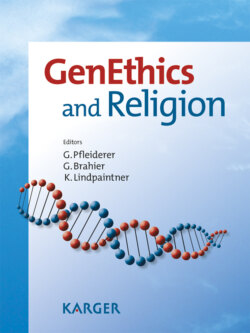Читать книгу GenEthics and Religion - Группа авторов - Страница 13
На сайте Литреса книга снята с продажи.
Beyond Playing God
ОглавлениеTo keep up with the rapid progress of modern gene technology religious ethics must engage in new ideas and unorthodox ethical reflections. Denying such reflections would risk rendering religious ethics a mere mouthpiece of anti-technological fears and instincts and a public morality mirroring such attitudes. Avoidance of such attitudes will require diligent efforts to understand relevant forms of biotechnology and their potential risks and benefits, as well as critical self-reflection among religious ethicists.
In the sacred texts of Christianity, Judaism, Islam, and Buddhism, of course no direct reference is made to the ethical dimension of gene technology. Nevertheless, there are concepts of life, principles of ethics, and principles of dealing with the creative potential of humanity in all these scriptures. In addition, all religions have more or less established traditions of sophisticated ethical debate on those subjects and as they pertain to intricate questions of human life. Religious debates, including those on ethical topics, may be treacherous, highly ambiguous, and – at least for outsiders – often irrational. Still, these debates have their own logical framework, and by and large they endeavor to be of public relevance. This does not mean that bioethical debates within religious communities are less intense and rigorous than those in secular environments – quite on the contrary. Indeed, pluralism is not only a characteristic of the modern world but also of the history of religions – religions needed to find ways to deal with pluralism all along.
Despite their wide diversity, all ethical debates among religions are probably based on a common, shared view of humanity as the most tenuous form of life on earth. Human life is itself playing God, without being God. The preservation and reflection of this knowledge may be the very reason why religious ethics is not only useful but perhaps even fundamentally necessary for both individuals’ and societies’ discourse on gene technologies. This knowledge may indeed be why humankind has adopted religious thought and practice throughout history.
